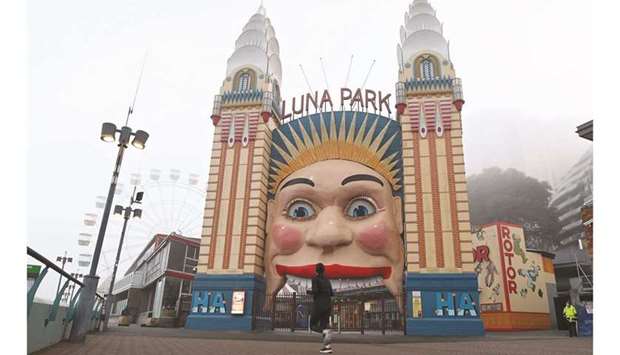The highly contagious Delta variant of the coronavirus is surging through Asia, with record numbers of infections in Australia and South Korea, prompting some countries to tighten curbs and others to hasten vaccination.
The variant, first detected in India in December last year, has spread to about 100 countries and the World Health Organisation warned recently that it could soon become the dominant form of the virus.
It is also driving a spike in cases in Japan, casting a pall over this month’s Olympic Games.
Australia’s New South Wales state, its most populous, yesterday reported the biggest daily rise in new cases so far this year.
Total cases in the state in the latest outbreak have topped 200, a majority caused by the Delta variant.
Sydney, home to a fifth of the country’s 25mn population, is half-way through a two-week lockdown to contain the outbreak, which has alarmed authorities amid a sluggish nationwide vaccination drive.
“I think the vaccine will certainly reduce the disease, it will certainly reduce hospitalisation. But we’ll certainly have the virus circulating in the community for those people who aren’t vaccinated,” said professor Jill Carr, a virologist with the College of Medicine and Public Health at Flinders University.
Australia, like several other countries in Asia, has struggled to inoculate people as initial successes in containing the pandemic led to vaccine hesitancy, and manufacturers were slow to ship doses.
Australia has fully vaccinated only 6% of its population, while Japan has vaccinated 12%.
Japan on Wednesday reported that the Delta variant now accounts for nearly a third of all cases in the eastern part of the country, including Tokyo, and that could grow to 50% by mid July.
Tokyo and three neighbouring prefectures are among areas under a ‘quasi’ state of emergency set to run through July 11 and the recent uptick in infections has officials leaning towards keeping restrictions in place, government sources said.
Tokyo governor Yuriko Koike yesterday reiterated that a ban on spectators for the Olympic Games, which start on July 23, would be an option if the coronavirus situation worsened.
In South Korea, officials yesterday said daily coronavirus cases topped 800, the highest in nearly six months, with vaccination below 10%.
The average number of new infections in the country has risen for 10 days straight, and authorities in Seoul have delayed relaxing social distancing measures.
“The Delta variant is a strain that is most optimised for widespread transmissions,” said Chun Eun-mi, a respiratory disease specialist at Ewha Womans University Medical Center in Seoul.
“The cases of Indonesia, India and Britain show that not just Korea but many other countries will need to rethink their vaccine strategy and reopening plans,” she said.
Indonesia, the world’s fourth-most populous country, imposed emergency measures that begin today until July 20 to contain a spike in cases.
In India, the number of new infections has eased to two-month lows since hitting a peak of 400,000 a day in May, with the government focusing on mass vaccinations.
Australia cuts international arrival by 50%
Australia yesterday announced a dramatic cut in the number of people who will be allowed to enter the country, as it struggles to contain coronavirus clusters that plunged major cities into lockdown. Prime Minister Scott Morrison said quotas for overseas arrivals would be cut by around 50% to help prevent further outbreaks. Under the current “zero Covid” strategy, just 6,000 people are allowed to enter Australia on overseas commercial flights each week and arrivals must undergo two weeks of hotel quarantine. That quota will be cut to around 3,000 by the middle of July, Morrison indicated, although the government will at the same time step up its private repatriation flights. Morrison announced the decision amid growing anger over repeated snap lockdowns, the leakiness of hotel quarantine facilities and what critics have dubbed a vaccine “stroll out”.

A woman jogs in front of the Luna Park in Sydney yesterday, after the park was closed to avoid the spread of the Delta Covid-19 variant.
